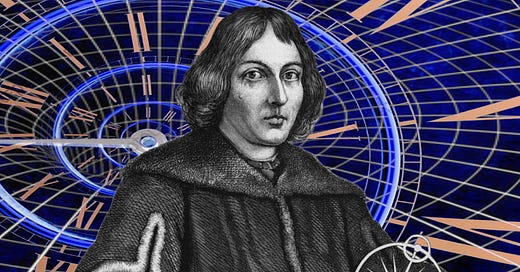No, the Copernican Principle does not apply to time
A common error in the service of a worse argument.
Hate to pick a fight over this kind of take, but Freddie de Boer’s latest is pretty aggravating:
I would call for a Temporal Copernican Principle, an admonition that commentators on modern issues, especially AI, operate from the general assumption that we are not occupying a particularly important time period within human history. (To be clear, the ordin…
Keep reading with a 7-day free trial
Subscribe to Carl Beijer to keep reading this post and get 7 days of free access to the full post archives.





